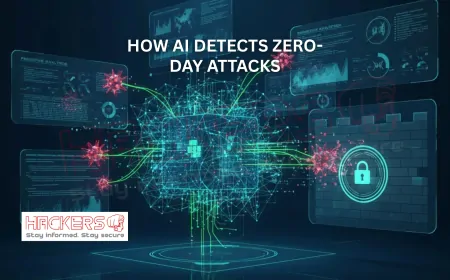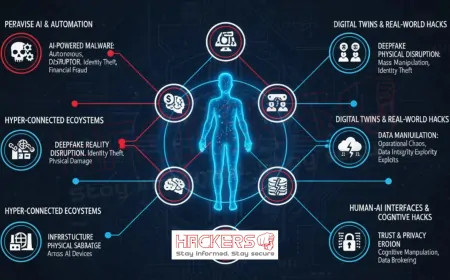How Much Does LPT Certification Cost and Is It Worth It?
Imagine stepping into the shoes of a cyber superhero, armed with the skills to uncover hidden vulnerabilities in digital fortresses before the villains strike. That's the allure of the Licensed Penetration Tester (LPT) Master certification. In a world where data breaches cost companies millions and headlines scream about the latest hack, professionals who can test and strengthen security are in high demand. But is pursuing the LPT worth your time and money? If you're a beginner eyeing a career in cybersecurity or an experienced IT pro looking to specialize, you've probably heard of LPT from the EC-Council. It's touted as the elite badge for penetration testers those ethical hackers who simulate attacks to find weaknesses. However, with costs involved and a challenging exam, it's natural to wonder about the price tag and return on investment. In this blog post, we'll dive deep into the nuts and bolts of LPT. We'll break down the costs, explore what you get for your money, weigh the pros and cons, and ultimately help you decide if it's a smart move for your career. Drawing from official sources, reviews, and industry insights as of 2025, we'll keep things straightforward so even newcomers can follow along. Let's unpack this and see if LPT could be your next big step.

Table of Contents
- What is the LPT Certification?
- Prerequisites for LPT
- Breaking Down the Costs of LPT
- Cost Comparison Table
- Benefits of Earning LPT
- Potential Drawbacks and Criticisms
- Is LPT Worth It?
- Conclusion
- FAQs
What is the LPT Certification?
The Licensed Penetration Tester (LPT) Master is an advanced certification offered by the EC-Council, a well-known organization in cybersecurity training. Think of it as the black belt in ethical hacking. LPT focuses on penetration testing, which is the practice of simulating cyberattacks on systems, networks, or applications to identify security flaws. It's like being a detective who probes for weak spots in a building's defenses.
To earn LPT, you don't take a separate exam; instead, it's awarded if you score 90% or higher on the Certified Penetration Testing Professional (CPENT) exam. CPENT is the core program here, a rigorous course that covers everything from basic hacking techniques to advanced topics like IoT (Internet of Things) device testing, cloud security on platforms like AWS or Azure, and even industrial systems like SCADA used in factories.
The CPENT exam is no walk in the park it's a 24-hour practical test where you attack simulated networks, exploit vulnerabilities, and submit a detailed report. (Vulnerabilities are weaknesses that hackers could use to break in.) If you hit that 90% mark, you get the LPT Master title, which signals to employers that you're among the best. This certification is aimed at professionals who want to prove their mastery, not beginners just starting out.
Why does it matter? In 2025, with AI-driven threats and complex cloud setups, companies need experts who can think like attackers but act ethically. LPT holders are seen as elite because the program emphasizes real-world skills, including writing professional reports that explain findings to non-technical bosses. It's part of a progression: many start with CEH (Certified Ethical Hacker), move to ECSA, and then tackle CPENT for LPT.
Overall, LPT isn't just about passing a test; it's about building instincts for high-stakes security work. If you're passionate about cybersecurity, this could elevate your profile significantly.
Prerequisites for LPT
Before diving into costs, let's talk about what you need to get started. While EC-Council doesn't enforce strict prerequisites for CPENT (the path to LPT), it's not for absolute beginners. You'll need a solid foundation in IT and security to succeed.
- Recommended Experience: At least two years in information security or penetration testing. If you're new, start with entry-level certs like CompTIA Security+ or CEH.
- Technical Knowledge: Understand networking basics (how computers connect), operating systems (Windows, Linux), and scripting (simple programming in Python or Bash to automate tasks).
- Prior Certifications: Many candidates have CEH and ECSA, as CPENT builds on those. CEH teaches hacking tools, ECSA focuses on methodology.
- Age and Background: You must be 18 or older, and a background check might be required for ethical reasons.
- Training Requirement: While self-study is possible, official training is recommended for access to labs and materials.
Without this base, the 24-hour exam could be overwhelming. Think of it as climbing a mountain you need training and gear first.
Breaking Down the Costs of LPT
Now, the big question: how much does it cost? As of October 2025, achieving LPT involves expenses for training, the exam, and ongoing renewal. Prices can vary by region and provider, but here's a breakdown based on official EC-Council info and common packages. Note that LPT is earned via CPENT, so costs are tied to that program.
First, training: EC-Council offers self-paced and live options. Self-paced is cheaper and flexible, ideal for working pros. Live training provides instructor interaction but costs more.
- Self-Paced Training (iLearn): Around $2,199. Includes video lessons, e-books, 6 months of lab access (virtual environments to practice hacks), and an exam voucher.
- Live Online Training (iWeek): About $3,499. Features live classes, same materials, and labs, plus real-time Q&A.
- In-Person Training: Varies by partner, often $3,000-$4,000, including hands-on sessions.
The exam itself: If buying separately, the CPENT exam voucher is approximately $1,199. It covers the proctored 24-hour test. Retakes cost extra another $1,199 if you fail.
Other costs:
- Study Materials: If not in a package, e-books and practice tests run $200-$500.
- Lab Access Extensions: Extra months cost $100-$200.
- Renewal Fees: LPT requires annual renewal at $250, or $750 for three years. This includes continuing education credits (like attending conferences or taking courses) to stay current.
- Miscellaneous: Travel for in-person training ($500+), home lab setup ($300 for software/tools), or membership fees if not certified yet.
Total initial cost? For a typical self-paced path: $2,199 (training + exam) + $200 (materials) = about $2,400. Add renewal, and it's $2,650 in year one. For live training, expect $3,700+. Prices might fluctuate, so check EC-Council's site. Scholarships or employer sponsorships can reduce out-of-pocket expenses.
Compared to other certs like OSCP ($1,600 exam + labs), LPT is pricier but includes more comprehensive training.
Cost Comparison Table
| Component | Approximate Cost (USD) | Details |
|---|---|---|
| Self-Paced Training | $2,199 | Videos, labs, exam voucher |
| Live Training | $3,499 | Instructor-led, interactive |
| Exam Voucher (Separate) | $1,199 | 24-hour practical test |
| Renewal (Annual) | $250 | Continuing education |
| Renewal (3 Years) | $750 | Bulk payment option |
| Additional Materials | $200-$500 | Books, practice tests |
Benefits of Earning LPT
So, what do you get for that investment? LPT packs a punch in career advancement. Here's why many say it's worth it.
- Career Boost: LPT opens doors to high-paying roles like lead penetration tester ($120,000+ average salary), red team operator, or security consultant. Employers value the practical skills.
- Skill Mastery: You learn cutting-edge techniques, including AI in pentesting, cloud hacks, and report writing—skills directly applicable to jobs.
- Global Recognition: EC-Council certs are known worldwide, especially in government and enterprise sectors.
- Job Security: With cyber threats up 30% yearly, certified pros are in demand. LPT can lead to promotions or better job offers.
- Networking: Access to EC-Council's community, events, and resources for ongoing learning.
- Personal Growth: The challenge builds confidence and problem-solving under pressure.
Reviews praise its realism; one holder said it "bridged theory and practice like no other." If you're in pentesting, LPT can differentiate you.
Potential Drawbacks and Criticisms
No certification is perfect, and LPT has its share of critiques. EC-Council has faced backlash for past issues, like website hacks, leading some to question credibility.
- High Cost: At $2,400+, it's expensive compared to self-study options like OSCP.
- Exam Difficulty: The 24-hour format causes fatigue; reporting is stressful if you're not used to it.
- Small Community: Fewer resources than OSCP, making prep harder.
- Mixed Reviews: Some say EC-Council certs are "checkbox" items, not as respected as GIAC or Offensive Security.
- Renewal Burden: Annual fees and credits add ongoing costs.
In forums like Reddit, pros debate if it's "worth it" versus hands-on experience. For beginners, it might be overkill.
Is LPT Worth It?
Ultimately, yes if it aligns with your goals. If you're mid-career in security, aiming for advanced roles, LPT's practical focus and prestige can pay off quickly. Salaries often rise 20-30% post-cert, recouping costs in months.
However, if budget's tight or you're entry-level, consider cheaper alternatives like eJPT. Weigh your experience: LPT shines for those with basics, filling gaps in cloud/IoT testing.
From 2025 reviews, it's valued for enterprise realism but not a must-have. If your employer pays or you love pentesting, go for it. Otherwise, build experience first.
Conclusion
To sum up, LPT certification costs $2,400-$4,000 initially, with $250 annual renewal, but offers elite skills in penetration testing. It covers advanced topics, boosts careers, and is recognized globally, though drawbacks like difficulty and criticisms exist. Whether it's worth it depends on your stage great for pros, perhaps wait for beginners. In cybersecurity's fast-paced world, investing in LPT could secure your future. Research, prepare, and decide what's best for you.
FAQs
What is the total cost for LPT certification?
Around $2,400 for self-paced training and exam, up to $3,700 for live options, plus renewal.
Is training required for LPT?
Not mandatory, but recommended for labs and success.
How do I earn LPT Master?
Score 90%+ on the CPENT exam.
What is the CPENT exam like?
A 24-hour practical test with network attacks and reporting.
Are there prerequisites for CPENT?
No strict ones, but experience in security is advised.
How much is the renewal fee?
$250 per year or $750 for three years.
Can I retake the exam if I fail?
Yes, but it costs another $1,199.
Is LPT recognized internationally?
Yes, especially in enterprise and government sectors.
What skills does LPT teach?
Advanced pentesting, cloud security, IoT hacking, reporting.
Is LPT better than OSCP?
It depends; LPT emphasizes reporting and enterprise scenarios.
How long to prepare for CPENT?
3-6 months with dedicated study.
Does LPT help with job placement?
Yes, it boosts resumes for pentesting roles.
What if I score below 90% on CPENT?
You get CPENT cert, but not LPT.
Are there scholarships for LPT?
EC-Council offers some; check their site.
Is EC-Council reputable?
Mixed views, but certs are widely accepted.
What career roles after LPT?
Penetration tester, security consultant, red teamer.
How often to renew?
Every three years with credits, but annual fee for LPT.
Can beginners get LPT?
Not recommended; build basics first.
What’s the salary boost from LPT?
Potentially 20-30% in security roles.
Where to buy training?
EC-Council store or authorized partners.
What's Your Reaction?










































































